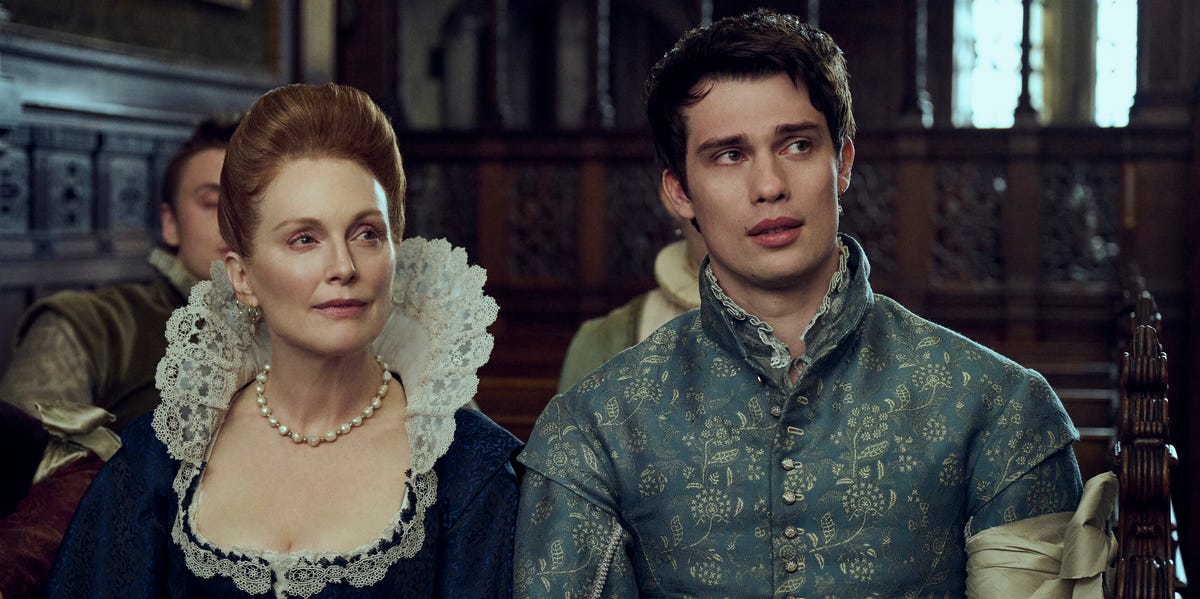The story of Mary and George Villiers is a fascinating tale of ambition, manipulation, and ultimately, tragedy. It’s a reminder that power can corrupt, and even the most carefully constructed schemes can unravel in unexpected ways. This captivating narrative unfolds against the backdrop of 17th-century England, where courtly intrigue was as common As Morning Tea.
At its heart lies the question: is Mary and George a true story? Absolutely! The lives of these two individuals were deeply entwined with the fate of King James I, and their story has captivated historians and readers alike for centuries. While some details may be shrouded in speculation, the core elements of their rise To Power, their tumultuous relationship with the king, and their eventual downfall are well-Documented Historical Events.
Join us as we delve into the lives of Mary and George Villiers, exploring how they navigated the treacherous waters of court life, achieved remarkable heights of influence, and ultimately met tragic ends. Their story is a cautionary tale about the seductive allure of power and the consequences that can follow When Ambition Outweighs Morality.
The Rise of George Villiers
George Villiers’ ascent to power was a remarkable feat orchestrated by his ambitious mother, Mary. She understood the importance of courtly favor and set her sights on securing a place for her son within King James I’s Inner Circle. Recognizing George’s charm and intelligence, she groomed him from a young age, ensuring he possessed the necessary skills to captivate the king.
At first glance, it seemed like an unlikely pairing: a handsome youth of noble birth and the aging monarch. However, King James was captivated by George’s charisma and wit. He showered him with gifts, bestowed upon him titles of nobility, and ultimately made him his favorite. This favoritism fueled George’s rapid rise through the ranks. He quickly became a powerful figure at court, wielding influence over political decisions and commanding respect from even the most Seasoned Courtiers.
Within a few years, George Villiers was elevated to Duke Of Buckingham, one of the highest positions in the land. His journey from obscurity to prominence serves as a testament to Mary’s cunning manipulation and George’s undeniable talent for navigating the treacherous waters of courtly life. This meteoric rise, however, would soon be followed by a Dramatic Fall From Grace.
Mary Villiers: Mastermind Behind the Throne
While George Villiers enjoyed the spotlight and wielded power as Duke Of Buckingham, it was his mother, Mary, who orchestrated their rise to prominence. She possessed a keen intellect, an unwavering ambition, and a deep understanding of courtly politics. Recognizing that her family’s future depended on securing favor with King James I, she devised a cunning plan to Elevate Her Son.
Mary played the role of a Devoted Mother, diligently grooming George from childhood to possess the charm, intelligence, and grace necessary to captivate the king. She understood the importance of appearances, ensuring that George presented himself impeccably at court events. She also cultivated relationships with influential figures, subtly guiding them towards supporting her son’S Advancement.
Mary’s influence extended beyond simply promoting George’S Career. Rumors circulated about a close relationship between Mary and King James I, fueling speculation about her role in Shaping His Decisions. While the truth behind these rumors Remains Debated, it’s clear that Mary wielded considerable power within the court. Her ambition knew no bounds, and she was willing to employ any means necessary to secure her family’S Future.
 Mary Kay Letourneau Last Photo: Teachers Final Moments
Mary Kay Letourneau Last Photo: Teachers Final MomentsKing James I’s Favorite
King James I’s fondness for George Villiers was legendary, transforming the young nobleman into a figure of immense power and influence Within His Court. The king showered George with lavish gifts, Bestowed Upon Him Prestigious Titles, and entrusted him with important political decisions. This unprecedented favoritism sparked both admiration and envy among the courtiers, as George quickly ascended the ranks to become one of the most powerful men in England.
The nature of their relationship has been a subject of much speculation Throughout History. While some historians argue that it was purely platonic, others suggest a deeper, More Intimate Connection. Regardless of the true extent of Their Bond, James I’s infatuation with George undoubtedly played a significant role in shaping the political landscape of his reign.
George Villiers became a conduit for James I’s desires and ambitions, wielding considerable influence over policy decisions and appointments. This close relationship ultimately proved to be both a blessing and a curse for George. While it propelled him to unparalleled heights of power, it also made him a target for enemies who sought to undermine the king’s authority.
From Favor to Impeachment
Despite his meteoric rise and immense influence, George Villiers’ reign at the pinnacle of power was not without its challenges. His ambition sometimes outweighed his judgment, leading to costly military campaigns that Ultimately Tarnished His Reputation. His political decisions were often met with resistance, particularly from those who resented his rapid ascent and perceived arrogance.
As tensions mounted, accusations of corruption and mismanagement began to circulate around George Villiers. His enemies seized upon these allegations, fueling public discontent and prompting calls for his removal from power. In 1626, a formal impeachment process was initiated Against Him, accusing him of treason, bribery, and abuse of office. The charges were politically motivated, reflecting the growing opposition to both George and King James I’s policies.
Although he managed to avoid immediate punishment, the impeachment trial deeply damaged his standing at court. His reputation as a trustworthy advisor was shattered, and his influence waned considerably. This marked a turning point in His Life, signaling the beginning of his downfall From Grace.
A Legacy of Ambition and Tragedy
George Villiers’ life ended tragically in 1628 when he was assassinated by John Felton, a disgruntled courtier who blamed him for the king’s misfortunes. The assassination shocked England and served as a stark reminder of the dangers inherent in courtly intrigue. Despite his untimely death, George Villiers left behind a complex legacy marked by both ambition and tragedy.
His story continues to fascinate historians and readers alike, offering a glimpse into the power struggles, Personal Rivalries, and political machinations that defined Elizabethan England. While some view him as a ruthless opportunist who abused his position of power, others see him as a talented politician who was ultimately betrayed by His Own Ambition.
Regardless of how he is ultimately judged, George Villiers remains an enigmatic figure whose life serves as a cautionary tale about the dangers of unchecked power and the fragility of fame. His story reminds us that even those who reach the pinnacle of success can be brought down by their own mistakes or the actions of others.










